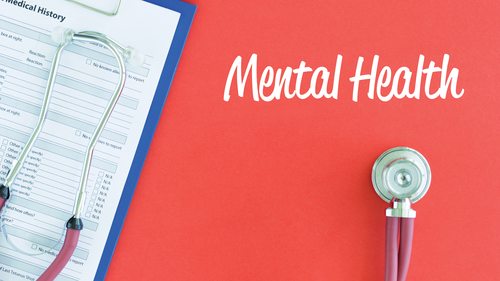
Mental Health Stigma Begone! 6 Helps
Mental illness = Mental Weakness. Have you heard, viewed, said, felt it?
Mental illness, whether fleeting as in panic attack, fear as in a traumatic event or persistent anxiety and depression over a personal loss or just an unexplained condition, has often been subject to stigma.
Even though anxiety and depression shows up in 20% of people (1 in 5) and 5% in long term distress (1 in 20) (Substance Abuse and Mental Health Services Association (SAMHSA), in psychguides), one study reports, “Three out of four people with a mental illness report that they have experienced stigma. Stigma is a mark of disgrace that sets a person apart. When a person is labelled by their illness they are seen as part of a stereotyped group. Negative attitudes create prejudice which leads to negative actions and discrimination”. (mentalhealth.wa.gov.au)
Myths and stereotypes have splashed across our TV and movie screens for years; men imbued with magical crime-solving or disease-curing powers that hindered their personal lives, criminals who were “psychotic” and therefore could not be understood- only feared, girls with eating disorders that appeared in one episode of a sitcom and then were cured after a heart-to-heart, soap operas that reveled in the split personality — not actually a real disorder — as a plot point.
Today we can be reassured. Here is EMILY’s story:
“I grew up in a very small town in North Carolina, weird and pudgy, without too many other kids to play with. I spent a lot of time watching TV. It was my reassurance that the outside world was bigger and more colorful than the one I lived in. I’d watch shows like “The Kids in the Hall” or “Twin Peaks,” and I’d see weird people being celebrated and appreciated without compromising their weirdness.
Now there are many unique characters and situations for us to feel a kinship with, and far from making those shows less accessible, it’s awakening the fandom of those of us who have never seen ourselves on TV. Not only are people connecting to these flawed characters, but TV is so good and so specific now that people are connecting to the show itself as a way to cope, because they feel as if the show was made for them.
I have friends who are former substance abusers who cite the next season of “The Walking Dead” as the thing keeping them from using. Looking forward to a season premiere gives them the hope to stay sober day after day. I have anxious friends who watch “The Big Bang Theory” to calm down, because they are comforted by its patterns and well-known characters. I have depressed friends who send episodes of “You’re the Worst,” a cable comedy show that deals explicitly with characters who suffer from depression and PTSD, to family members to help explain how they feel. When Gretchen, the character with depression in “You’re the Worst,” spends one episode immobile on the couch, and her friends work themselves into frenzies trying to “fix” her, it highlighted both the futile kindness of their efforts and Gretchen’s inability to be fixed. And it’s much easier to communicate those delicate ideas with a link to a TV show.
This is what TV does for us now. It doesn’t replace relationships, or intimacy, or make us cold strangers to one another, but it can shine a light on our darkest, loneliest corners.
The odds are, if something you’ve experienced makes people shout “yes!” it’s going to make viewers at home feel understood and less alone”.
(By EMILY V. GORDON, Psychologist, author of “Super You: Release Your Inner Superhero” and an executive producer of “The Meltdown With Jonah and Kumail.” The TV Cure, NY Times, opinion, SEPT. 19, 2016)
Here are 6 ways you can deal with stigma yourself:
- Don’t let stigma create self-doubt and shame.Stigma doesn’t just come from others. You may mistakenly believe that your condition is a sign of personal weakness or that you should be able to control it without help.
- Don’t isolate yourself.If you have a mental illness, you may be reluctant to tell anyone about it. Reach out to people you trust for the compassion, support and understanding you need.
- Don’t equate yourself with your illness.You are not an illness. So instead of saying “I’m bipolar,” say “I have bipolar disorder.” Instead of calling yourself “a schizophrenic,” say “I have schizophrenia.”
- Join a support group.
- Speak out against stigma.Consider expressing your opinions at events, in letters to the editor or on the Internet. It can help instill courage in others facing similar challenges and educate the public about mental illness.
- Most of all: Get treatment.You may be reluctant to admit you need treatment. Don’t let the fear of being labeled with a mental illness prevent you from seeking help. Treatment can provide relief by identifying what’s wrong and reducing symptoms that interfere with your work and personal life.
(mayoclinic.org/diseases-conditions/mental-illness/in-depth/mental-health)
This is where Counseling on Demand comes. We are the kind of help to which the Mayo Clinic refers.
We are online at CounselingonDemand.com
We are only a click away.